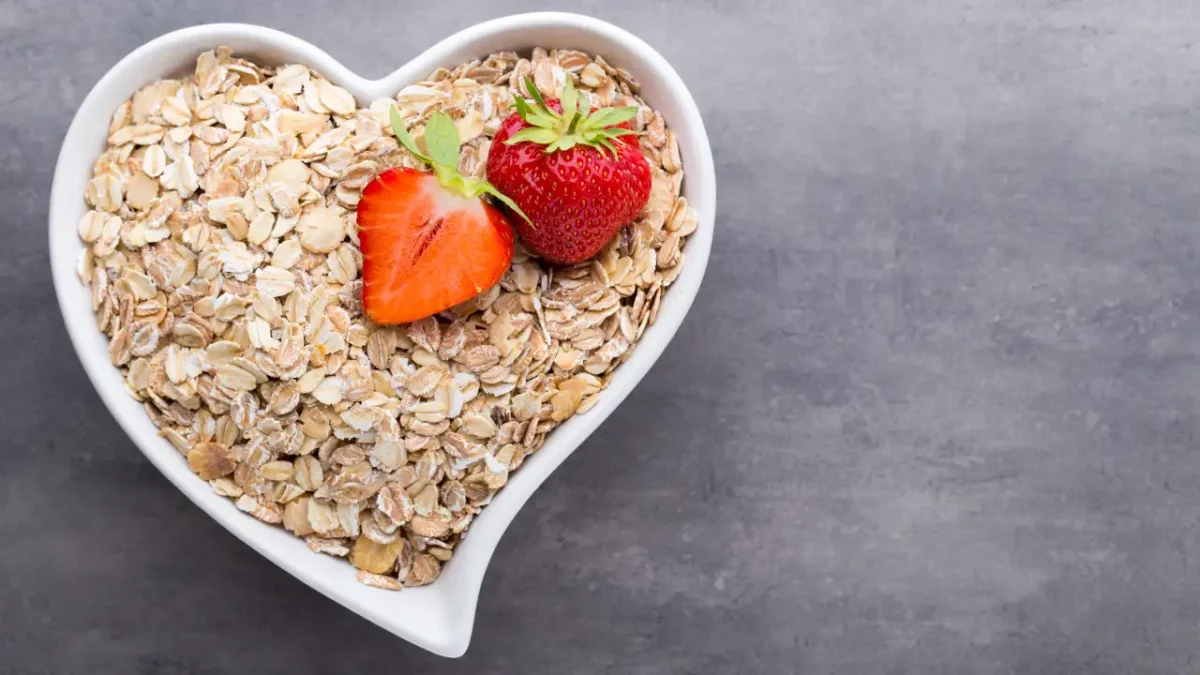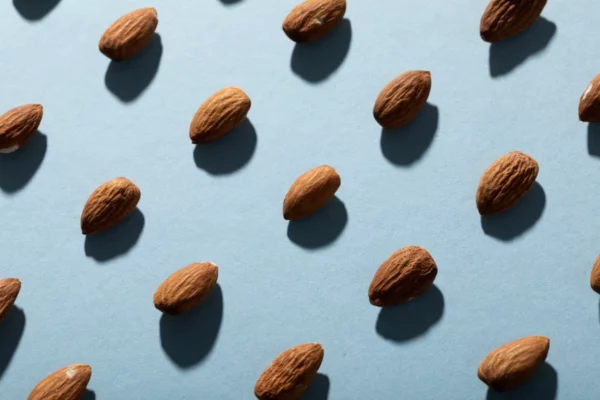Introduction
In the past decade, there’s been much attention on gut health, including the role of prebiotics, probiotics, and dietary fiber. But is oatmeal a prebiotic? If you’re a fan of oatmeal in any form for breakfast, you’ll be thrilled with the good news: oatmeal might be more than just a hearty meal. It may also play a vital role in your digestive health. Let’s dive in!
Understanding Prebiotics
What Are Prebiotics?
Prebiotics are a type of dietary fiber that serves as nourishment for beneficial bacteria in the gut. They are non-digestible compounds in certain foods that provide a favorable environment for probiotics (good bacteria) to thrive. While probiotics are live microorganisms that offer various health benefits when consumed, prebiotics act as the “food” for these probiotics (microorganisms), helping them to flourish and maintain a balanced gut microbiome.
How Prebiotics Influence Gut Health
| Ways Prebiotics Influence Gut Health | Description |
|---|---|
| Nutrient Source for Beneficial Bacteria | Prebiotics, composed of complex carbohydrates like dietary fibers, reach the colon intact where they provide nourishment for specific beneficial bacteria such as Bifidobacteria and Lactobacilli. |
| Stimulation of Beneficial Bacterial Growth | Prebiotics are fermented by beneficial gut bacteria in the colon, producing short-chain fatty acids (SCFAs) like butyrate. SCFAs have multiple benefits, including providing energy to colon cells, maintaining a healthy pH, and exerting anti-inflammatory effects. |
| Enhancement of Gut Barrier Function | Prebiotic fermentation leads to the production of SCFAs, particularly butyrate, which strengthens the integrity of the gut barrier. This barrier prevents the passage of harmful substances into the bloodstream, reducing inflammation risk. |
| Modulation of Immune Responses | Prebiotics promote the growth of beneficial bacteria that interact with immune cells in the gut. This interaction helps regulate immune responses, potentially preventing autoimmune diseases and allergies. |
| Reduction of Pathogenic Bacteria | The growth of beneficial bacteria due to prebiotic consumption indirectly suppresses the growth of harmful or pathogenic bacteria, limiting their colonization. |
| Regulation of Gut Motility | Soluble fibers in prebiotics regulate gut motility by adding bulk to the stool and promoting regular bowel movements, helping prevent issues like constipation. |
| Metabolic Benefits | Prebiotics influence gut microbiota composition, potentially offering metabolic benefits such as better metabolism and reduced risk of conditions like obesity and diabetes. |
| Mental Health Connection | Prebiotics may influence the gut-brain axis, contributing to improved mood and cognitive function as emerging research suggests a link between gut and mental health. |
To incorporate prebiotics into your diet, consider consuming foods rich in dietary fibers, such as whole grains, legumes, fruits, and vegetables. Additionally, prebiotic supplements are available, but it’s generally recommended to obtain prebiotics from whole foods for a balanced and diverse nutrient intake. As individual responses to prebiotics can vary, it’s a good idea to gradually introduce them into your diet and observe how your body responds.
Oatmeal and Prebiotic Properties
Oatmeal has been recognized for its prebiotic properties, particularly when consumed as whole oats or steel-cut oats. These properties have been the subject of much attention over the past decade, particularly due to their effects on the gut microbiome.
Soluble Fiber in Oatmeal
Oatmeal, especially whole oats and steel-cut oats is rich in a soluble fiber called beta-glucan fiber. This type of fiber has prebiotic effects that can promote the growth of good gut bacteria. Here’s what experts say about it:
- Forms a Gel-like Substance: When it absorbs water, it forms a viscous gel. This can slow down digestion, helping the large intestine nourish good gut bacteria.
- Beta-Glucan Fiber: This type of soluble fiber has unique prebiotic effects. It supports the growth of beneficial bacteria and helps in cholesterol level regulation.
- Blood Pressure and Heart Health: By aiding in cholesterol control, it can help reduce the risk of cardiovascular disease.
Insoluble Fiber in Oatmeal
Insoluble fiber also plays an important role:
- Digestive Health: It adds bulk to the stool and assists in regular bowel movements, preventing constipation.
- Prevention of Digestive Tract Diseases: Insoluble fiber has been shown to reduce the risk of developing diseases in the gastrointestinal tract.
- Fiber Content: Oats are a good source of insoluble fiber, which makes them a vital part of a high-fiber diet.
The Combined Effects
The combination of soluble and insoluble fiber in oatmeal offers a range of benefits:
- Gut Health: The fibers promote the growth of healthy gut bacteria, supporting the gut microbiome.
- Digestive System Support: Helps in healthy digestion and can alleviate symptoms of irritable bowel syndrome.
- Weight Control: The fibers in oats contribute to feelings of fullness, aiding in weight management.
Table: Oatmeal’s Fiber Content
| Type of Fiber | Effects on Health |
|---|---|
| Soluble Fiber | Gut health, cholesterol control |
| Insoluble Fiber | Digestive health, bowel regularity |
Other Prebiotic Foods
Oatmeal isn’t the only source of prebiotics. Including other high-fiber foods in your daily diet can boost your overall health.
- Jerusalem Artichokes: Rich in prebiotic inulin.
- Dandelion Greens: Great addition for beneficial bacteria.
- Chicory Root: Known for its high fiber content.
- Black Beans: Good source of fiber that supports good health.
Other Health Benefits of Oatmeal
Not only is oatmeal an excellent source of prebiotic compounds, but its insoluble and soluble fiber also offers other health benefits: From cardiovascular wellness to weight management, the benefits of oatmeal are extensive and scientifically backed.
- Heart Disease Prevention: Oatmeal’s fiber content helps in controlling heart disease.
- Weight Management: Helps in preventing weight gain.
- Blood Sugar Regulation: Improves insulin sensitivity.
- Vitamins and Minerals: Rich in Vitamin C, Vitamin K, and B vitamins.
- Energy Levels: Provides sustained energy.
- Antioxidants: Fights free radicals, providing anti-inflammatory benefits.
Heart Disease Prevention
Reduces Cholesterol Levels
- Soluble Fiber: The beta-glucan fiber in oatmeal binds with cholesterol particles and helps in their elimination.
- Prevents Heart Disease: By lowering cholesterol levels, oatmeal helps reduce the risk of heart disease and stroke.
Supports Healthy Blood Pressure
- Rich in Minerals: Oatmeal is a good source of potassium and magnesium, which contribute to healthy blood pressure regulation.
Weight Management
Appetite Control
- High-Fiber Content: The soluble fiber in oatmeal absorbs water, forming a gel-like substance in the digestive tract. This promotes feelings of fullness and helps control appetite.
- Weight Loss Aid: By controlling hunger, oatmeal can support weight loss or weight maintenance goals.
Blood Sugar Regulation
- Controls Blood Sugar Levels: The soluble fiber in oatmeal slows down sugar absorption, helping to manage blood sugar levels, making it beneficial for insulin sensitivity.
Digestive Health
- Regular Bowel Movements: Insoluble fiber in oatmeal adds bulk to stools, helping to prevent constipation.
- Prebiotic Properties: Oatmeal nourishes beneficial gut bacteria, promoting a healthy digestive system.
Skin Health
- Skin Soothing Properties: Oatmeal contains avenanthramides, anti-inflammatory compounds that can soothe irritated skin.
- Used in Skincare Products: Many skin care products contain oat extracts, acknowledging its soothing effects.
Mental Health
- Mood Enhancement: Some studies suggest that the complex carbohydrates in oatmeal may help boost serotonin levels, enhancing mood.
Table: Oatmeal’s Nutrient Content and Health Benefits
| Nutrient | Health Benefit |
|---|---|
| Beta-glucan | Cholesterol reduction, heart health |
| Fiber (soluble) | Appetite control, digestive health |
| Fiber (insoluble) | Digestive health, bowel regularity |
| Avenanthramides | Skin soothing properties |
| Magnesium, Potassium | Blood pressure regulation |
Conclusion
Oatmeal is a powerhouse that contributes to digestive health through its prebiotic properties. Incorporating oatmeal and other whole grains into your meals is a good idea for the beneficial effects on your gut microbiome and overall health.
For more personalized insights into your dietary needs, explore our Prebiotic Supplement Guide or the High-Fiber Foods page on our website.
For more insights on incorporating oatmeal and other high-fiber foods into your meal plans, visit our High-Fiber Meal Plans page.
Reference: Study on the prebiotic effects of oat fiber found at PubMed.









